The Big Read: The serious business of gaming — S'pore eyes a slice of the billion-dollar e-sports pie
SINGAPORE — Like many other parents, Ms Jolene Poh’s folks were initially concerned when she became interested in gaming in primary school since it might affect her studies.
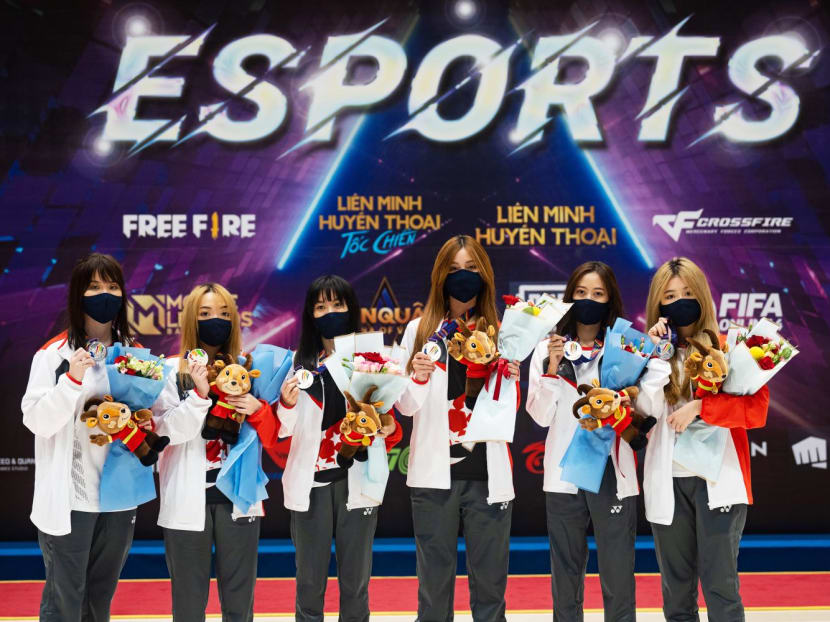
- The global e-sports industry is projected to generate nearly US$1.6 billion (S$2.2 billion) in revenues globally in 2023, double the US$776 million earned in 2018
- Singapore has been ramping up support for professional competitive gaming, and has landed several international tournaments
- The latest of such events is The International 11 to be held in October, the first time the apex tournament for multiplayer online game Dota 2 – which offered US$40m in prize money last year – is being staged in Southeast Asia
- However, on top of the ability to pull off the hosting of international tournaments, observers as well as people in the industry point out much effort is still needed to build up the domestic talent pool in e-sports and make it more attractive as a career option
SINGAPORE — Like many other parents, Ms Jolene Poh’s folks were initially concerned when she became interested in gaming in primary school since it might affect her studies.
“When I started to win prizes, like money or gaming gears or even a laptop, then they were more supportive, but my mum still wanted me to remember that studies is No. 1,” said Ms Loh, 26, who began competing in the League of Legends game at the age of 17.
Little did she expect that a decade later, she would become part of Singapore’s debuting women’s e-sports team which snagged a silver medal at the Hanoi Southeast Asian Games in May. She achieved this while juggling a full-time job in league operations at an e-sports company and studying part-time at the Singapore University of Social Sciences.
Ms Poh’s journey is a reflection of how e-sports or professional competitive gaming here has evolved over the years — an activity once described by veteran gamers as “always linked to addiction” but now increasingly recognised as a potential career path for some.
Almost in tandem, Singapore, too, is making strides in becoming a choice destination for top-tier e-sports tournaments.
In October, Singapore will be the first Southeast Asian nation to host The International (TI) — the biggest global tournament for multiplayer online game Dota 2, which last year offered over US$40 million (S$55.3 million) in total prize money.
This latest feather in the cap comes amid Singapore’s efforts to grab a slice of the growing e-sports pie. Globally, the industry's revenue has grown from US$996 million (S$1.37 billion) in 2020 to US$1.14 billion in 2021, according to market research firm Newzoo. This year, the figure is projected to reach US$1.38 billion.
The growth trajectory is expected to continue. “E-sports is expected to generate nearly US$1.6 billion in revenues globally in 2023, double that of the US$776 million earned in 2018 – East Asia contributes to a third of this revenue,” said Mr Guillaume Sachet, partner, advisory in KPMG Singapore, referring to an industry report published by the firm in 2021.
The economic opportunities presented by the industry has certainly not gone unnoticed. Responding to TODAY's queries, Ms Ong Ling Lee, executive director for sports and wellness at the Singapore Tourism Board (STB), said: “With Singapore’s growing reputation as an e-sports destination, we continue to attract gaming companies with regional ambitions to Singapore."
She added: “The live telecast or streaming of e-sports events also offers branding opportunities for Singapore, which can become the top-of-mind destination for e-sports fans globally."
According to figures published by database company Statista in March 2021, the global e-sports audience had grown from 397.8 million in 2019 to 435.9 million in 2020. It is expected to grow further to 577.3 million by 2024.
Local e-sports talents, companies and associations interviewed by TODAY were quick to point to several factors that make Singapore attractive to tournament organisers, such as the island’s excellent technology and business infrastructure.
Capitalising on these strengths, they said, would help grow the Singapore's e-sports industry and at the same time, provide a boost to the tourism sector which is making up for lost ground after two barren years.
Nonetheless, much work needs to be done for Singapore to establish itself as a key player in the global e-sports industry beyond hosting international tournaments, they added. This includes building up the domestic talent pool in e-sports and make it more attractive as a career option.
HOW THE E-SPORTS INDUSTRY WORKS
When it comes to money matters, the way e-sports works is similar to how other conventional sports, such as football, operate, said industry stakeholders.
E-sports athletes compete as members of professional teams, which are managed by companies.
These athletes are paid a basic salary, on top of getting a cut of the prize money and the company’s revenues, such as sponsorship deals and merchandising. Streaming of video gaming content is another source of income, said the stakeholders.
While the actual quantum varies — depending on factors such as the popularity of the game title which the athlete competes in and how much the managing company can afford to pay — some stakeholders said that the average basic pay for a top-tier e-sports athlete in Singapore is between S$3,000 and S$5,000 a month.
Mr Nicholas Khoo, co-founder of Singapore Cybersports & Online Gaming Association (Scoga), said that he knows of team managers and top players who are paid “similar to a (university) graduate’s pay”.
Meanwhile, for games with smaller following — which would lead to lower viewership numbers and thus less advertising revenue — TODAY understands that athletes can earn anything between a few hundreds to below S$2,000.
Mr Dominik Reitmeier, 29, a former competitive player-turned-commentator with experience playing in teams in Europe, China and Singapore, said the basic earnings here are “very far behind” compared to those in more mature markets.
“I would say if I had to put a number on it, 70 to 80 per cent behind, compared to the European scene, the American scene, Chinese scene as well. (South) Korean scene is big too,” said Mr Reitmeier, who goes by the gaming moniker “Black^”. He is a Singapore permanent resident who has been based here since 2016.
Nevertheless, Singapore has produced players who are raking in the dough.
Renowned Dota 2 professional player Daryl Koh, otherwise known as “iceiceice”, has bagged himself over US$1.8 million in prize money in his career so far, which started around 2011.
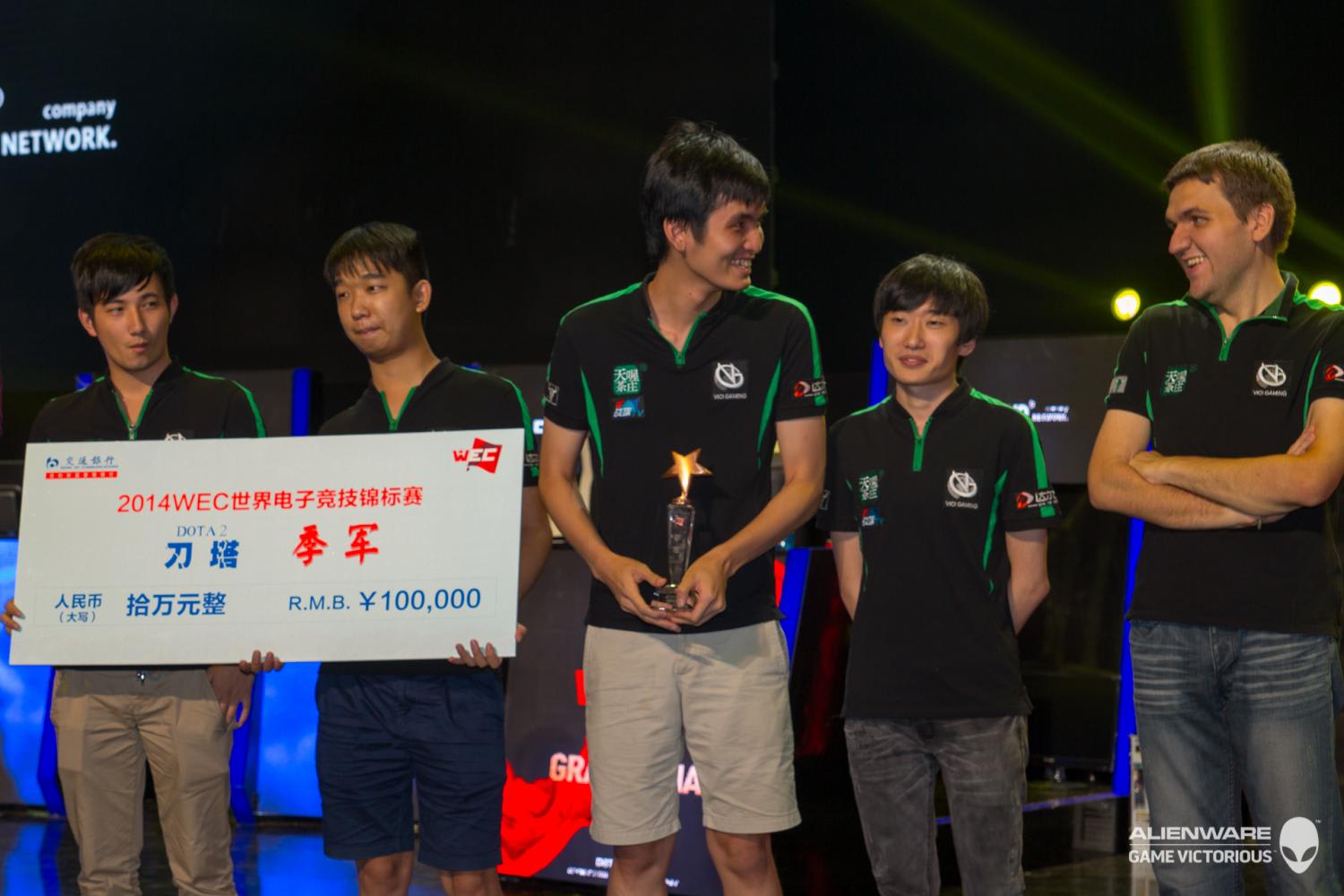
Mr Wong Jeng Yih, or “nutz” — who had played alongside Mr Reitmeier and Mr Koh in 2016 when the latter set up Team Faceless — reportedly earned over US$230,000 in prize money before he announced his retirement last year. Team Faceless disbanded in July 2017.
But to achieve such success is no walk in the park.
Mr Reitmeier recalled his competitive days, when weeks or months leading up to competitions would include routines that encompassed physical exercise and game practice sessions. The competitive players typically would go over their strategies and look out for bad playing habits and mistakes committed during practice, among other things.
“It's kind of similar to a conventional sports game where if you don't exterminate those habits early, they'll stay and it will really ruin your chances of winning,” he said.
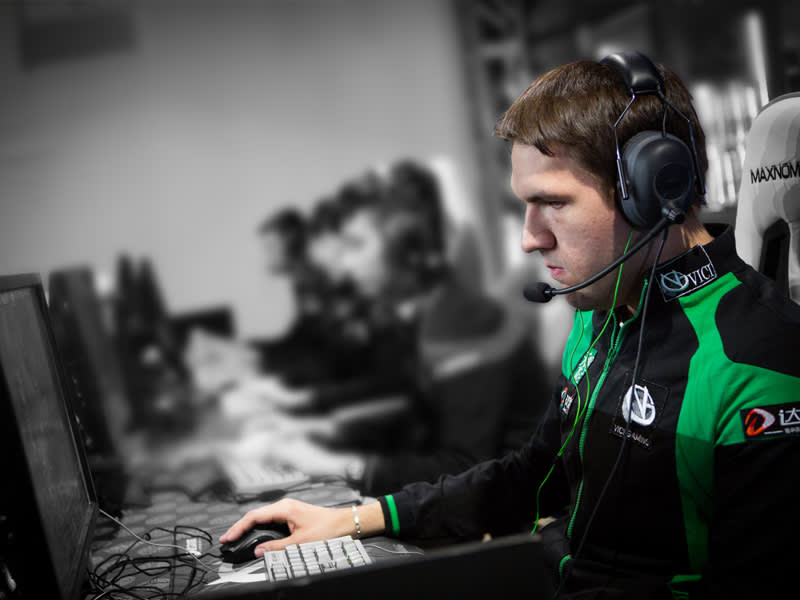
Mr Kelvin Tan, a former competitive player who is currently the secretary general of the Singapore E-sports Association (SGEA), said that part of the group's work is to impress upon parents that becoming an e-sports athlete is a pursuit underpinned by disciplined and holistic training.
“They shouldn't be (merely) playing 10 hours a day and just forget about school and all that. That's not how you become an e-sports athlete, that is more like casual gaming,” he said.
“E-sports is actually training and living an athlete's life, which also has a mix of taking care of how you eat, your exercises and rest, and things like that," he added.
However, not many in Singapore can commit full-time to such a regimen. In fact, those who compete in e-sports here have to, more often than not, juggle their passion with other commitments including school and work.
And before players could even begin competing in major tournaments, they need to first hone their skills and climb game rankings in order to be noticed by teams, with a chance of getting recruited.
CASHING IN ON THE GLOBAL E-SPORTS BOOM
A confluence of factors — from the explosive growth of digital devices to pandemic-enforced indoor confinement — has fuelled the growth of the global e-sports industry.
While the developments have opened up opportunities for some to turn gaming into a serious career, it also means that in the bigger picture, countries are sitting up and eyeing a slice of a increasingly lucrative pie.
On its part, Singapore's investment in building up a strong digital infrastructure has been key to attracting major e-sports events here, thereby allowing it to leverage the positive trends in the industry, said some experts.
“From high internet speeds to venue options and a robust events industry, Singapore also has the ideal infrastructure to host e-sports events, as seen in its ability to host a significant number of high-profile events such as the M2 World Championship, Free Fire World Series, Wild Rift Icons Global Championship as well as the ONE Esports Singapore Major,” said Ms Elicia Lee, vice-chairperson of Singapore Games Association (SGGA), referring to the major gaming tournaments held here recently.
“Other important areas that are not seen by consumers are things like facilitation of entry visas, efficient processing of required paperwork for crews and teams to be able to travel to compete,” she said.
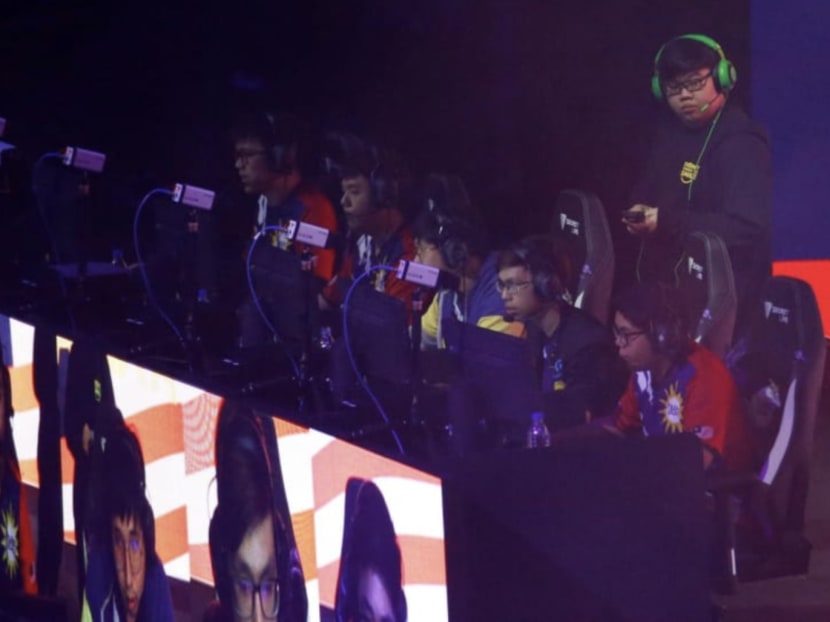
On bringing in high profile e-sports tournaments, industry players said that apart from raising value of the Singapore brand, this would also contribute to the development of the local gaming industry.
“On the talent and expertise front, the hosting of such e-sports events has been key in providing opportunities for our local companies to gain experience and expertise,” said Ms Lee.
Still, Mr Neo Yong Aik noted that such exchange of expertise during major events only benefits a small number of industry players here. Mr Neo is the founder of regional events management firm NEO.TM and e-sporting broadcasting and event space The Gym.
“Most of them (publishers and organisers) will use overseas production people because one of the key things is they already have a relationship with the publishers. And they have the know-how on how things are done,” he said. “They will sometimes use local companies, but not a lot.”
While such a view is valid, said Mr Khoo of Scoga, he believes that more exposure opportunities for locals will come as Singapore attracts more of such high-profile events.
Mr Jayf Soh, founder and CEO of e-sports company RSG, said that the hosting of big e-sports tournaments would also bring about "a shift in perspective" among Singaporeans sceptical of a career in the e-sports industry.
"(Singapore hosting TI 11) will be an important experience for a lot of the local Singaporeans to really have a good taste of what the sports industry really feels and looks like," he said.
The growing e-sports industry in Singapore has led to the setting up of several companies in recent years.
For example, Emerge Esports was founded in 2020 with 40 e-sports talents and personalities under its wing.
Its CEO and co-founder Roy Kek said that in less than one-and-a-half years, the company has grown to manage 300 talents and 15 teams globally.
Gushcloud International, an influencer, entertainment and talent acquisition company headquartered in Singapore, also entered the e-sports space last year, by investing in a Japanese e-sports management company RELATION X and buying talent contracts belonging to Singapore-based DIVINITY.
DIVINITY has since rebranded to ALMGHTY.
“We work closely with Billy Soo, co-founder of ALMGHTY and ‘Sky Wee’ Wee Yao Liang (our key talent and co-founder) to grow ALMGHTY beyond an e-sports team,” said Ms Althea Lim, co-founder and CEO of Gushcloud International, in an email response to TODAY’s queries.
“The vision of ALMGHTY is to be a leading gaming organisation representing Asian faces in global gaming.
“We’ve seen what 100 Thieves and FaZe Clan have done in the West — create a brand that fans love — and we want our e-sports talents to do the same and even more, by going beyond competitive gaming,” she added.
100 Thieves and FaZe are e-sports companies which have expanded into becoming lifestyle brands.
Mr Neo‘s event space, The Gym, was launched in early 2020 at Jalan Besar, and boasts facilities supporting e-sports such as streaming and broadcasting, and a small arena for tournaments.
“We want to have a venue where aspiring e-sports players can come, amatuers, come and train in our mini arena,” he said.
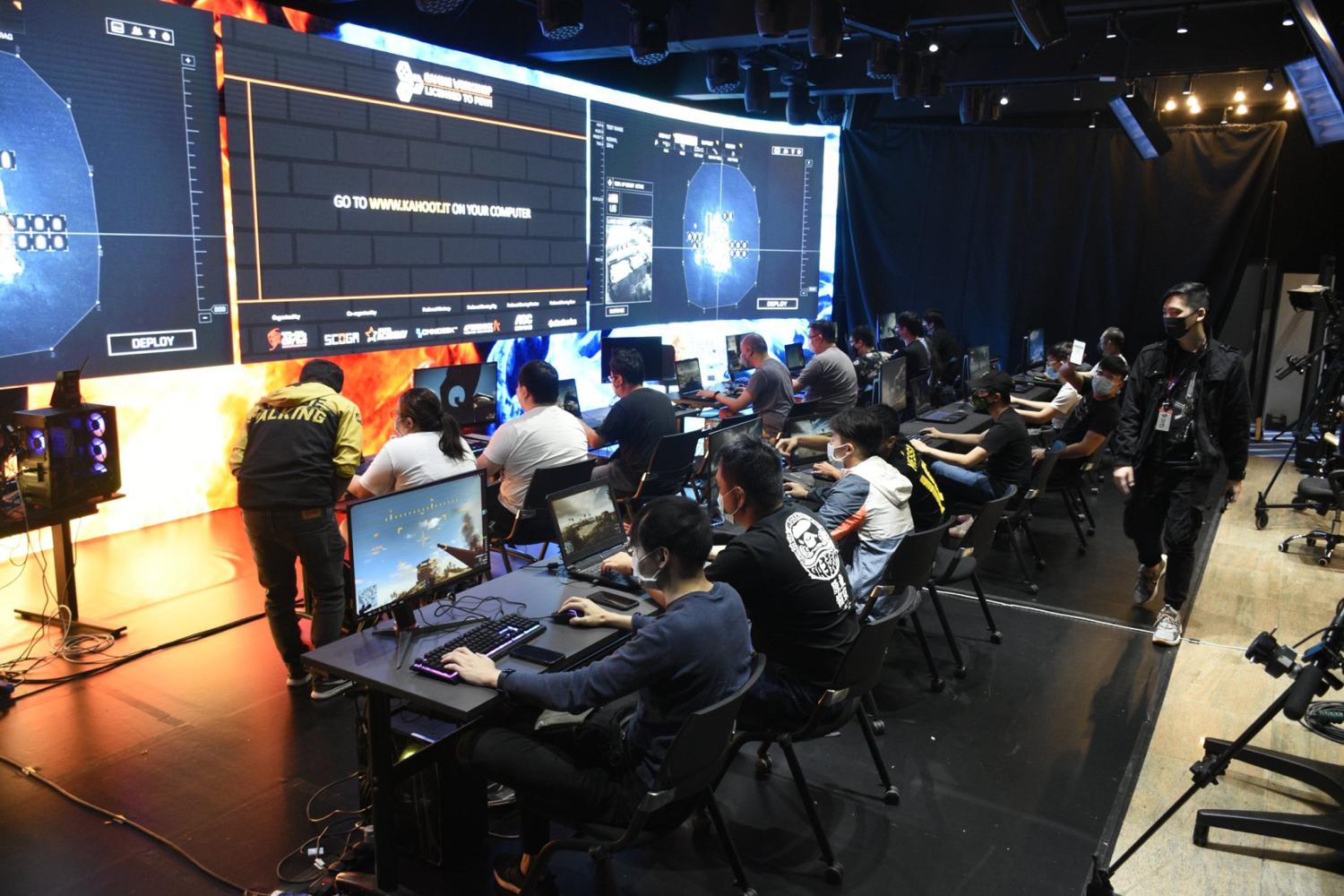
LATE TO THE GAME, S'PORE IS UP AGAINST STIFF COMPETITION
Ms Lee of SGGA noted that Singapore's e-sports industry is "considered relatively nascent, compared to regions such as the Americas and Europe".
"Still, Singapore has a lot going for it,” she said.
In the wider Asia region, countries such as South Korea, Japan and China can be considered strong, developed markets for e-sports. For example, China’s Shanghai was the only Asian city to host The International before Singapore.
Within Southeast Asia, Singapore has a strong infrastructure advantage over many of its neighbours when it comes to hosting e-sports tournaments.
However, the bigger population sizes of its neighbours offer them an advantage both in terms of potential talent pool and event attendees and viewers — a key consideration for event organisers when picking a venue to hold their event.
A report by Tencent and Newzoo in September 2021 found that Indonesia came up tops with most e-sports viewers at 17 million, followed by Vietnam at 8.1 million.
Mr Neo said that Singapore’s handling of the Covid-19 pandemic has helped it stand out from its bigger neighbours as a major event venue.
“But after Covid is over and all the markets open up, I will say most of the publishers will prefer to do it in bigger countries, like Indonesia, Philippines and Thailand,” he said.
Still, while the audience's physical presence has traditionally been a big part of tournaments, the pandemic resulted in greater emphasis on online viewership and streaming — and this has become a consideration for sponsors and tournament organisers.
An example would be the Free Fire World Series 2021 Singapore tournament which, as of May 2021, recorded the highest number of peak viewers in all e-sports tournament, at 5.41 million, according to Statista.
Hence, Singapore can tap its infrastructure advantage to provide a high quality online viewing experience for fans, said industry players.
Nonetheless, some like Mr Kek from Emerge E-sports, warned that when the bigger neighbours catch up in terms of infrastructure, they will be a force to be reckoned with.
He highlighted Indonesia and the Philippines in particular, which “have a huge fan base there who are very enthusiastic about e-sports, even more enthusiastic than Singapore fans”, and are working on upgrading their telecommunications infrastructure.
“It’s just a matter of time before they’ll be ready to host big e-sports events,” he said.
INDUSTRY HERE GREW DURING PANDEMIC YEARS. WHAT'S THE WAY FORWARD?
Away from external competition, e-sports industry stakeholders reiterated that the sector has made progress in Singapore during the pandemic-stricken past two years.
For one, lockdowns and the propensity for people to stay indoors have led to an uptick in online entertainment, which includes e-sports and streaming.
Industry associations and players have also been stepping up efforts to enhance interest in e-sports among the wider community. Scoga for example has set up an E-sports Academy to engage and educate youths about the sport.
The Gym currently holds frequent tournaments, including weekly events called ‘FriYay Night Gaming’.
Mr Kek of EMERGE said that about five to 10 years ago, only a handful of major brands would want to sponsor or be related to e-sports events.
“For us who have been operating the past 15 to 17 months, we already are working with 89 brands. So there is huge potential, with more people coming on board,” he said.
While acknowledging the amount of work still to be done, SGEA’s Mr Tan said the national e-sports industry’s achievements in recent regional games were signs that efforts were starting to bear fruit.
“You can also see that because of all the involvement of professional leagues and the gaming fan base is bigger, the standard has become higher… we are able to compete and be able to win some medals… among the Southeast Asian countries,” he said.
Going forward, Mr Sachet of KPMG noted that "markets that are significant players in the e-sports industry usually have a well-established ecosystem supported by the pillars of infrastructure, culture and talent".
And culture and talent are areas which Singapore has to work on to push e-sports to greater heights here, industry players told TODAY.
In terms of culture, Mr Reitmeier said he still encounters many parents who are averse to the idea of their children pursuing non-conventional careers, especially e-sports which they deem as just playing games.
But he hopes that with the more frequent profiling of e-sports events, it will result in greater awareness and more members of the public seeing the industry in a better light.
“Let’s say I have kids, and my kids want to be professional … I'll be like, okay, I'll let you try for a year or two. But you've got to produce results. And then, if they produce results, it's great. If not, then you move on, but that's just how it always is in life, right? But at least they should be given a chance,” he said.
Singaporean pro gamer Jensen Goh, who has been coaching professional e-sports teams in Asia and the United States, suggested shifting the approach in developing e-sports talent in Singapore.
Instead of focusing efforts on the top e-sports players, he suggested positioning e-sports as something beneficial to youths, similar to conventional sports.
While conventional sports generally offer physical health benefits, e-sports help hone cognitive abilities and problem-solving skills, Mr Goh said.
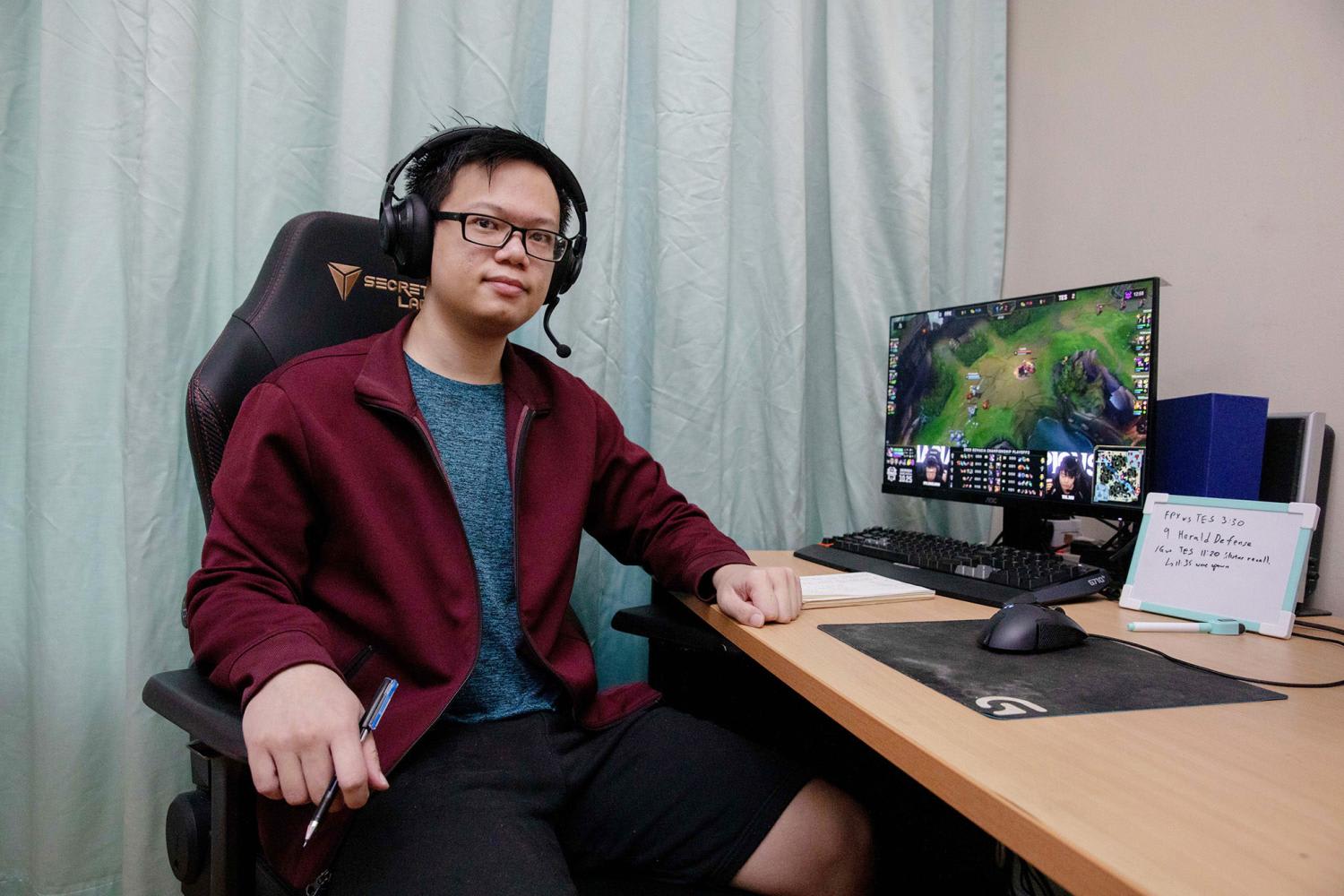
Developing talent at the grassroots level would then ensure that Singapore would have a sufficient talent pool to groom potential elite players.
“If we ignore the grassroots level, anything else just becomes a short-term thing that benefits like five people who will move in and out of the e-sports space,” Mr Goh added.
Another area to address is attracting enough corporate interest to finance teams in Singapore, so that more people can pursue e-sports full-time.
KPMG’s Mr Sachet said that while there has been increased interest, a large number of businesses have yet to see the value of associating their brands with e-sports.
“The level of investment required to boost the local e-sports scene to greater recognition is also relatively modest compared to other professionally played sports,” he pointed out.
The lack of financial backing from the corporate sector has resulted in e-sports talent either pursuing the interest only on a part-time basis or seeking greener pastures overseas.
Notable examples who have left Singapore to make more money are Mr Goh, "iceiceice", as well as former Singaporean pro gamers-turn-coaches Nelson Sng and Xing Lei "chawy" Wong. Mr Goh and "chawy" are currently based in the US, while "iceiceice" and Mr Sng are in Europe.
“There's a reason why we're not in Singapore anymore. Right? Because we can't make a living doing things in Singapore,” said Mr Goh.
Semi-retired pro gamer Chong “Soul” Ru Chyi, 27, felt that it is a challenge, but not impossible, to pursue a full-time career in Singapore's e-sports industry. He is currently the business development lead at EVOS E-sports, the team which he had played for full-time previously. He also now manages the team, and occasionally plays for them at certain tournaments when called upon.
Besides gaming, e-sports players have to explore other opportunities in the industry, such as being a content creator or a talent who can attract sponsorships and endorsements, he said.
For Ms Poh, she is not planning to use her achievement at the recent SEA Games as a springboard to a full-time career as an e-sports player. She is just glad to be able to work full-time in the e-sports industry, although not as a gamer.
Asked if she would consider becoming a pro-gamer, she said: “Given the chance and if I were to get paid well... for sure I will. But it's a bit hard to happen here at the moment.”








